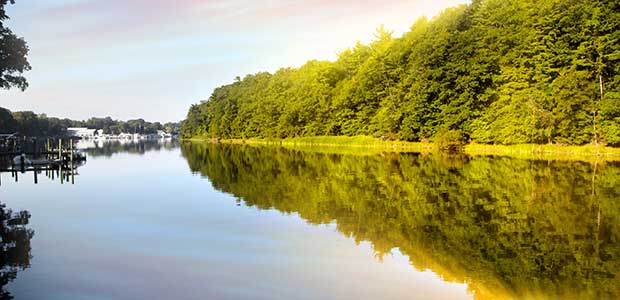
Michigan Congressman Introduces Great Lakes Oil Spill Prevention Act
The Great Lakes Oil Spill Prevention Act was introduced earlier this month and would “impose additional requirements on portions of petroleum pipelines that cross waters of the Great Lakes,” among other goals, according to the bill’s text.
Michigan Congressman Mike Bishop has introduced a bill to help preserve and protect the Great Lakes and the region’s related economies and resources. H.R.4787, the Great Lakes Oil Spill Prevention Act was introduced earlier this month and would “impose additional requirements on portions of petroleum pipelines that cross waters of the Great Lakes,” among other goals, according to the bill’s text.
“The Great Lakes are more than just water,” Bishop said. “The lakes represent our heritage, our recreation, our resources, and our jobs. As a lifelong Michigan resident, I believe each of us has a responsibility to ensure our lakes are preserved for future generations.”
The bill would set stricter owner and operator standards for pipeline structural integrity and safety, as well as stronger rules for pipeline structure testing and reporting. The Great Lakes Oil Spill Prevention Act would also increase financial liability and responsibility of pipeline operators, limit the operation of pipeline materials under the Great Lakes to 50 years, and set timelines to fix structural issues and penalties for delayed action to correct such issues.
“One of the largest threats facing our Great Lakes is an oil spill, and it is imperative we have safeguards in place to minimize the risk,” Bishop said. “I introduced the Great Lakes Oil Spill Prevention Act to ensure Michiganders have timely, accurate and transparent information about pipeline safety risks and to hold pipeline operators accountable.”
The Great Lakes include the jurisdictions of two countries, eight states, one province, and several tribes, and include a fishery with an annual collective value of more than $7 billion, according to the Great Lakes Fishery Commission (GLFC).
“Legislation, like that introduced by Congressman Bishop, recognizes that we must protect the Great Lakes from shoddy pipelines that could rupture and cause significant damage to human health, fisheries, habitat, and drinking water,” said Robert Lambe, executive secretary of GLFC. “This legislation helps to hold pipeline operators to the highest standards and holds them liable for any damage they cause.”
The bill is awaiting consideration by the House Transportation and Infrastructure Committee and by the House Energy and Commerce Committee.